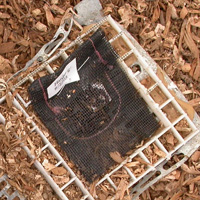
BIOLOGICAL CONTROL OF FILTH FLIES. Surveillance of parasitoid wasps can be conducted at livestock facilities by placing "sentinel" pouches containing fly pupae in areas where reproducing filth flies are concentrated. Field populations of wasps sting the pupae for a predetermined sampling period. Pouches are retrieved from the field and returned to the lab where pupae are individually gel capped and observed for emergence of wasps.
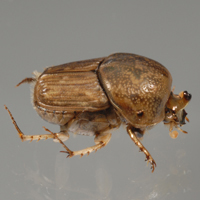
DUNG BEETLES. Diversity and abundance of dung beetles are being monitored in several north central Florida cattle pastures. Species of special concern include several introduced beetles. Experiments on the reproduction, development and survival of beetles fed manure from cattle that had received parasiticide treatment are being conducted to investigate the impact of producer practices on populations of dung beetles. More information.
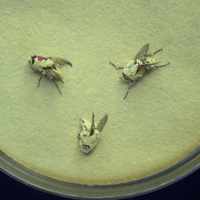
BIOLOGICAL CONTROL USING A PATHOGEN. Studies were conducted to determine the efficacacy of three strains of Beauveria bassiana, an entomopathogenic fungus, against house flies of four age classes. This information is useful for developing a formulation that can be used as a premise treatment. A mixture of male and female house flies of the four age classes were treated as a group. Model paint was used to distinguish the gender and ages.
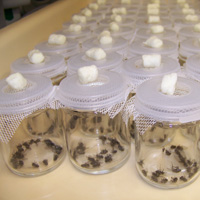
FILTH FLY RESISTANCE. Field strains of house flies and stable flies are being tested against commercially-available insecticidal products to determine levels of insecticide resistance. In addition, investigations of filth fly management practices, such as use of toxic baits, will help farmers choose the best fly control tactics.
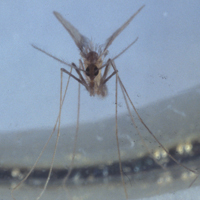
MEDICALLY IMPORTANT DIPTERA. The identification and development of new insecticides for protection against blood feeding insects and filth flies will provide the military with new and effective technologies to reduce exposure risk to military personnel. Target insects include house flies, mosquitoes, and sand flies. All of the compounds being examined are principally extracts of plants. Not only should this expedite registration, but also limit the likelihood of cross-resistance or non-target exposure to these novel chemistries.